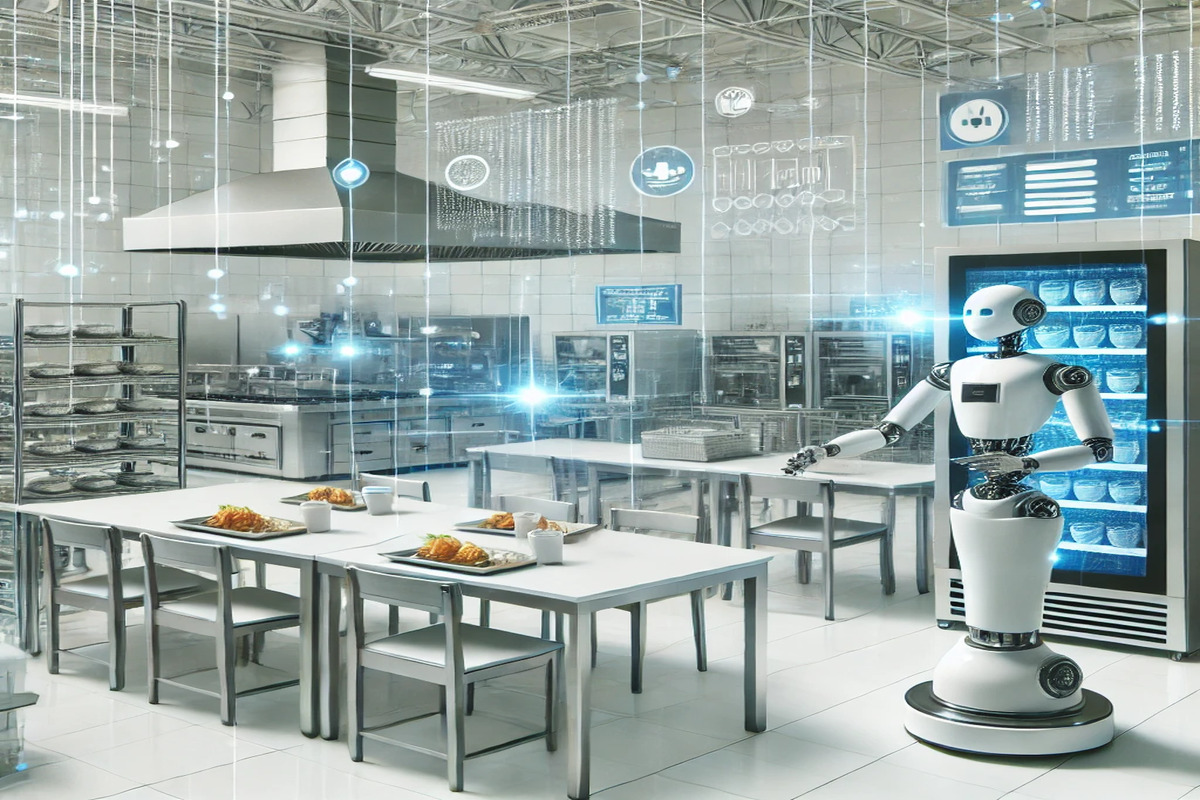In today’s digital age, technology plays a pivotal role in transforming food business operations, offering innovative solutions to enhance efficiency, reduce costs, and drive profitability. Read More
This blog explores how leveraging technology can benefit food businesses across various aspects of their operations.
Streamlining Supply Chain Management
1. Inventory Management Systems
- Benefits: Implementing cloud-based inventory systems automates tracking, reduces wastage, and ensures optimal stock levels.
- Efficiency Gains: Real-time data insights enable accurate forecasting, minimizing stockouts and excess inventory costs.
2. Supplier Relationship Management (SRM)
- Technological Integration: SRM platforms streamline communication, automate ordering processes, and facilitate vendor performance tracking.
- Cost Savings: Negotiate better terms, reduce procurement lead times, and maintain quality consistency through data-driven insights.
Enhancing Production and Quality Control
1. Automation in Manufacturing
- Advanced Equipment: Utilize automated machines and robotics to increase production efficiency, maintain product consistency, and reduce labor costs.
- Quality Assurance: Integrated sensors and AI-powered analytics enhance quality control, ensuring compliance with safety standards and customer expectations.
2. IoT Applications
- Smart Sensors: Monitor temperature, humidity, and other conditions in real-time to prevent spoilage, improve shelf life, and optimize production conditions.
- Predictive Maintenance: Predict equipment failures, schedule maintenance proactively, and minimize downtime for uninterrupted operations.
Improving Customer Experience
1. Online Ordering and Delivery
- E-commerce Platforms: Offer user-friendly websites or mobile apps for convenient online ordering, enabling customers to browse menus, place orders, and track deliveries.
- Personalization: Use data analytics to personalize promotions, recommend products, and offer loyalty rewards based on customer preferences and behavior.
2. Digital Payment Solutions
- Contactless Payments: Integrate secure payment gateways and mobile wallet options to streamline transactions, reduce waiting times, and enhance customer satisfaction.
- Order Management: Automated order processing and fulfillment systems improve accuracy, speed up service, and support seamless dining experiences.
Marketing and Customer Engagement
1. Social Media and Digital Marketing
- Targeted Campaigns: Utilize social media platforms and digital marketing strategies to reach a wider audience, promote specials, and engage with customers in real-time.
- Analytics: Analyze campaign performance, gather customer feedback, and adapt marketing strategies to optimize ROI and customer engagement.
2. Customer Relationship Management (CRM) Systems
- Data-driven Insights: Implement CRM systems to capture and analyze customer data, preferences, and purchase history. Use this information to personalize marketing efforts, tailor promotions, and enhance customer retention strategies.
- Automation: Integrate CRM with marketing platforms to automate personalized communication, follow-up emails, and loyalty program updates based on customer behavior and interactions.
Compliance and Operational Efficiency
1. Food Safety and Compliance
- Traceability Solutions: Implement blockchain technology or RFID tags to track food origins, ensure compliance with regulatory standards, and manage recalls efficiently.
- Auditing and Reporting: Generate automated reports, maintain audit trails, and demonstrate adherence to food safety protocols for regulatory inspections.
2. Supply Chain Transparency
- Supplier Integration: Collaborate with suppliers to integrate traceability solutions across the supply chain, ensuring transparency from sourcing to delivery.
- Real-time Monitoring: Use IoT and cloud-based systems to monitor supply chain activities, detect anomalies, and preemptively address compliance issues, enhancing operational efficiency and regulatory compliance.
Conclusion
Integrating technology into food business operations not only enhances efficiency and profitability but also enables businesses to meet evolving consumer demands and regulatory requirements. By leveraging inventory management systems, automation in manufacturing, IoT applications, online ordering platforms, digital payment solutions, and advanced marketing strategies, food businesses can streamline operations, improve customer experiences, and stay competitive in a rapidly changing market landscape. Embracing technology-driven innovations empowers food businesses to achieve sustainable growth, foster customer loyalty, and adapt proactively to industry trends and challenges.

